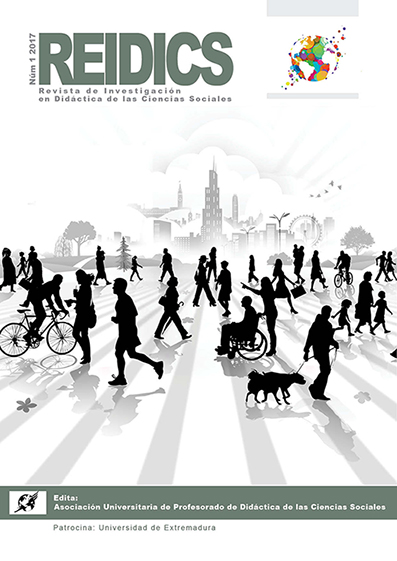Accessing the Past: Epistemic Beliefs about History in Social Studies Pre-Service Teachers.
DOI:
https://doi.org/10.17398/2531-0968.01.86Keywords:
Epistemic beliefs; history teaching; initial teacher training; beliefs about history; cognitive modelsAbstract
Studies published in the last decades show that epistemic beliefs about history can strongly influence the way in which the past is approached and addressed in the classrooms. From this point of view, it is essential to understand how pre-service teachers perceive this discipline, as well as whether their academic background in history has influenced their perceptions and beliefs regarding this subject. By establishing the hypothesis that history education can help develop a more nuanced and coherent conception regarding this area of knowledge, this study makes a comparison between epistemological beliefs found in secondary and primary education trainee teachers. By making use of a quantitative approach, the present study presents a Spanish translation of the BHQ (Beliefs about History Questionnaire), developed by Maggioni and VanSledright, which has been applied to a total of 177 prospective teachers. After categorising the participants in three different stances (copier, borrower and criterialist), results show that pre-service secondary education teachers manifest significantly more intricate conceptions about history than their primary education counterparts, favouring a criterialist stance over the other two. At the same time, the consistency of the answers are shown to be significantly higher for secondary education trainee teachers. It can be concluded that historical education plays an important role in influencing teachers’ epistemic beliefs, and that, consequently, initial teacher training should help prospective teachers reflect on these issues by putting its focus on them.
Downloads
Published
Issue
Section
License
Copyright (c) 2024 Diego Miguel-Revilla, María Teresa Carril, María Sánchez-Agustí

This work is licensed under a Creative Commons Attribution-NonCommercial-ShareAlike 4.0 International License.
Aquellos autores/as que tengan publicaciones con esta revista, aceptan los términos siguientes:
- Los autores/as conservarán sus derechos de autoría y garantizarán a la revista el derecho de primera publicación de su obra, el cual estará simultáneamente sujeto a la Licencia de reconocimiento de Creative Commons 4.0 BY-NC-SA que permite a terceros compartir la obra siempre que se indique su autor y su primera publicación en esta revista.
- Los autores/as podrán adoptar otros acuerdos de licencia no exclusiva de distribución de la versión de la obra publicada (p. ej.: depositarla en un archivo telemático institucional o publicarla en un volumen monográfico) siempre que se indique la publicación inicial en esta revista.
- Se permite y recomienda a los autores/as difundir su obra a través de Internet (p. ej.: en archivos telemáticos institucionales o en su página web) antes y durante el proceso de envío, lo cual puede producir intercambios interesantes y aumentar las citas de la obra publicada. (Véase El efecto del acceso abierto).
- Los autores y autoras han respetado la política de autoría de esta revista.







